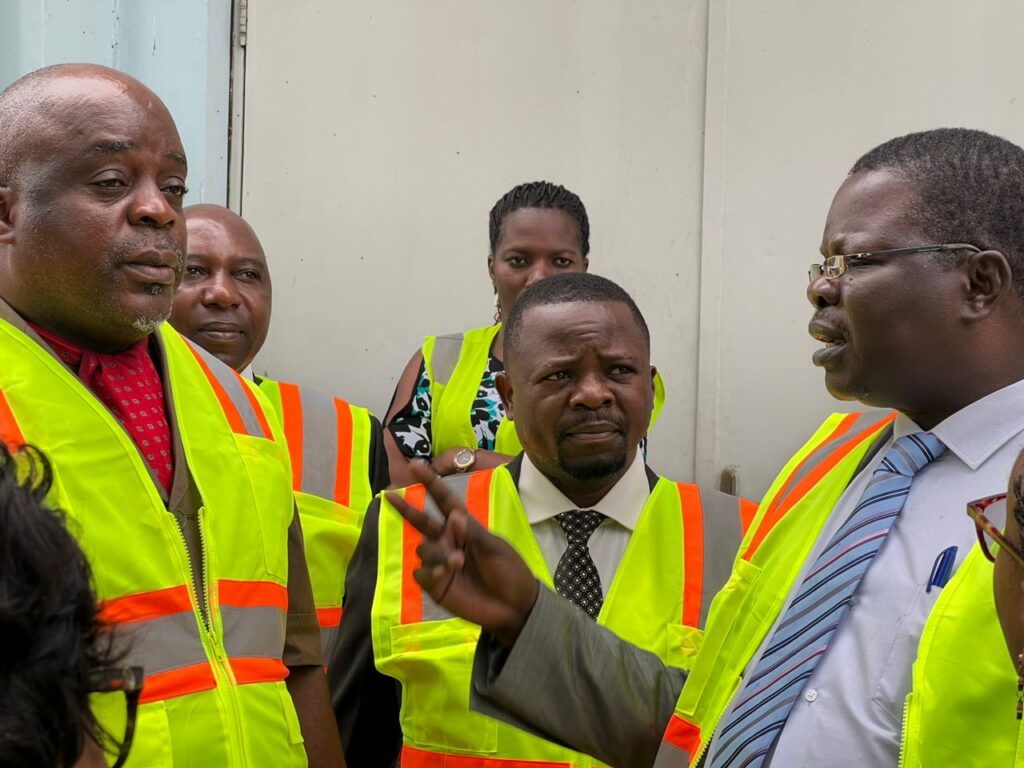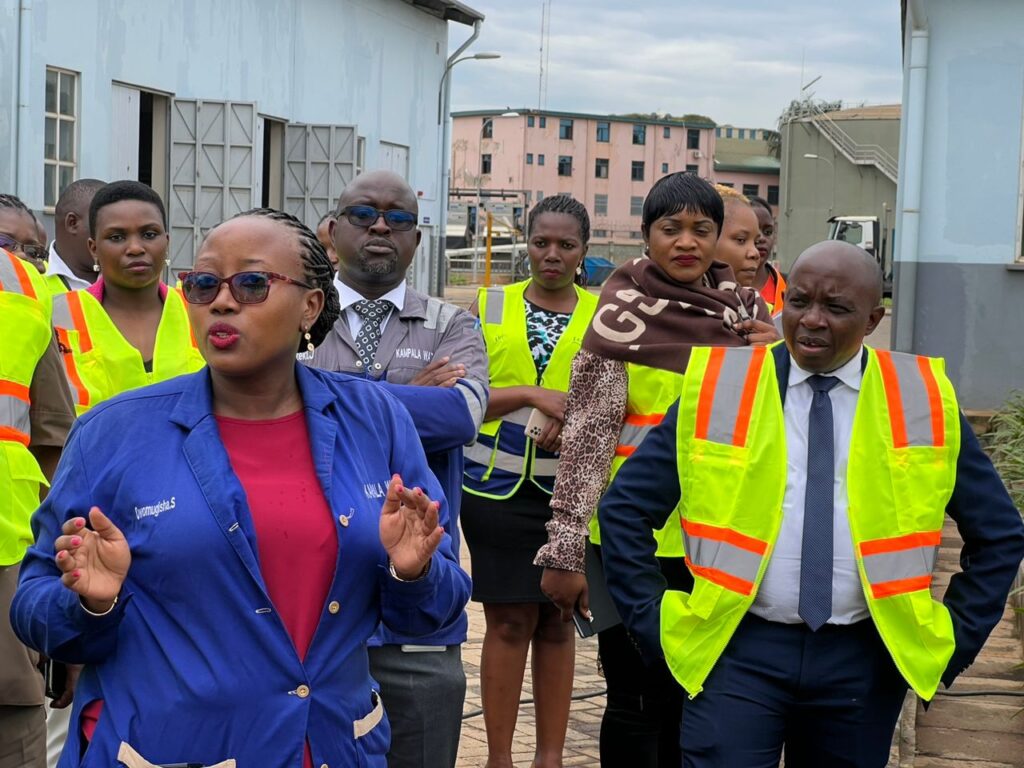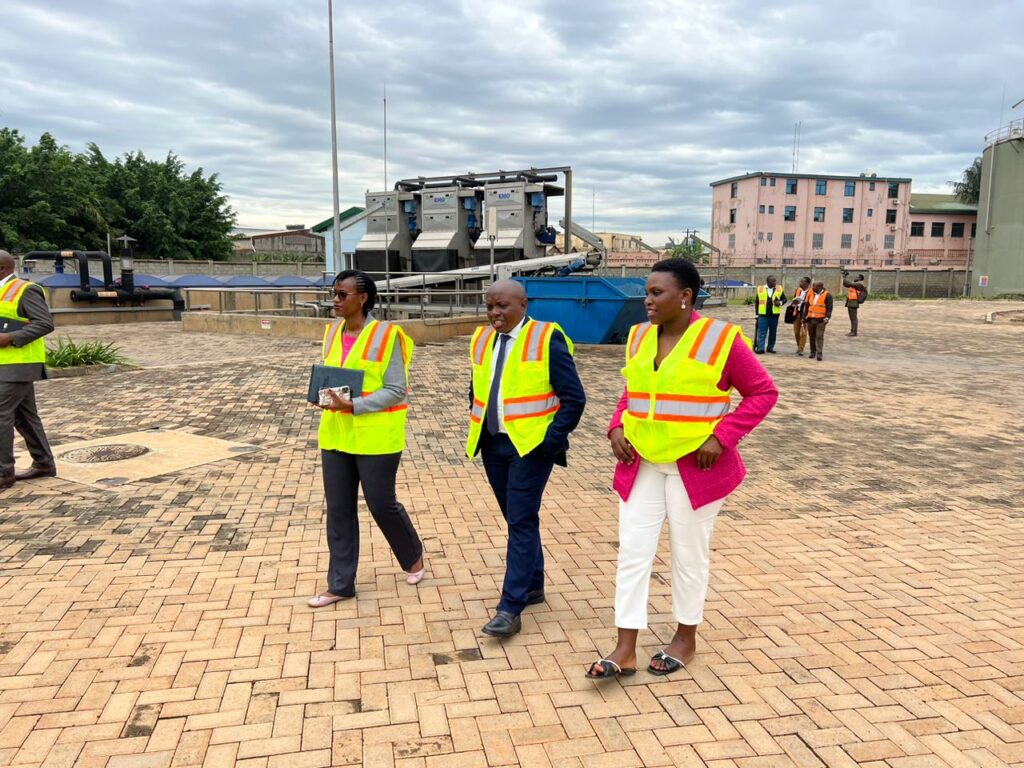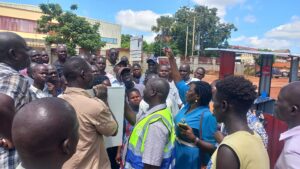
The parliamentary committee of parastatal bodies from the national assembly of Zambia recently embarked on a special visit to the National Water and Sewerage Corporation (NWSC). This visit served as a vital opportunity for knowledge exchange and assessment, as the committee aimed to gain insights into NWSC’s internal processes, performance plans, and the factors that have established NWSC as a world-class organization.
Under the leadership of the Deputy Managing Director-Technical Services, Eng. Johnson Amayo, the NWSC team exhibited the Corporation’s best practices, systems, and processes that have been instrumental in their remarkable success. This fostered an open and transparent exchange of ideas, challenges, and solutions, creating an atmosphere of mutual learning and growth between the teams.
The benchmark proved to be of significant value, facilitating knowledge exchange and providing deeper understanding of the challenges and best practices within the parastatal sector at a continental level. Through constructive discussions, the Zambian parliamentary committee identified key metrics, assessed their current standing, and formulated an action plan to achieve and measure their desired goals.
Eng. Amayo emphasized the crucial role of leaders in staying abreast of the water and sewerage industry, understanding emerging changes, adopting new systems and technologies, and consistently monitoring benchmarks. He highlighted the consequences that leaders may face when they ignore the developments in their environment, stressing the importance of maintaining a proactive approach.
Eng. Amayo further shared NWSC’s strategic priority areas with the Zambian delegation, which include industrialization, infrastructure development, skilling and workforce development, private sector involvement, and organizational health and sustainability. He emphasized that monitoring internal and external benchmarks is one of the most effective ways to build resilient teams.
“Benchmarking data helps corporations identify the most effective ways to utilize employee talent, organize tasks for optimal efficiency, and determine which aspects of the organizational processes should be improved or discarded,” stated Eng. Amayo.
Eng. Amayo also outlined the Corporation’s key strategic interventions, which encompass clear strategies aligned with the Sustainable Development Goals (SDGs), National Development Plan III (NDPIII), and government aspirations. He added that NWSC aims to ensure water for all by increasing geographical coverage and striving for 100% service coverage. The Corporation also focuses on reinforcing collective leadership with a well-articulated vision, prioritizing development over consumption behavior, and fostering innovation through in-house development of solutions and technologies tailored to their needs.

Eng Amayo also bragged of NWSC’s approach to building capacities at all levels includes dedicated training facilities for technical and leadership training, Financial independence, strong emphasis on customer and stakeholder delight, a holistic customer digital experience, leveraging information technology with features such as a one-stop customer interaction center, an interactive website, a mobile app, e-payment options, social media platforms, e-bills, and in-house application developments for efficient billing, inventory management, and procurement.
He also mentioned the Corporation’s focus on smart staff engagement, enhancing individual and team accountability, while constantly analyzing past performance to identify trends and patterns that contribute to overall improvements.
The Zambian parliamentary committee had the opportunity to visit NWSC’s capital sanitation project, the Bugoloobi Wastewater Treatment Plant (BWTP), the largest of its kind in the East African Community. With a capacity to process 45,000,000 liters (45,000 m3) of wastewater daily, the BWTP showcased NWSC’s commitment to addressing sanitation challenges.
Eng. Johnson Amayo acknowledged the challenges faced by the Corporation, such as inadequate infrastructure to cope with population growth, average water supply coverage of 80%, and limited financial resources to match the increasing demand for services. Additionally, he highlighted the adverse effects of climate change, unregulated human activities in water catchment areas, and inadequate physical planning, resulting in high costs for securing project sites.
To address these challenges, NWSC has developed game-changing strategies, including mobilizing funding for downstream sewerage collection infrastructure, financial support for water supply improvement projects in multiple cities, promoting high climate change resilience infrastructure, and advocating for stronger financing agreements. The Corporation is also actively engaging security agents to mitigate vandalism and exploring financing options to settle arrears on completed projects.
The Zambian delegation commended NWSC for its unwavering commitment to excellence and continuous improvement. Throughout the benchmarking process, the NWSC team demonstrated a dedication to achieving the highest standards in every aspect of their operations. Their emphasis on innovation, efficiency, and customer satisfaction is truly commendable.
On behalf of NWSC, the General Manager Kampala Water, Eng. Mahmood Lutaaya, expressed heartfelt appreciation and gratitude to the Zambian parliamentary committee for their valuable participation during the benchmarking visit. Their presence and contributions greatly enriched the team’s experience, and NWSC is genuinely thankful for their involvement.



